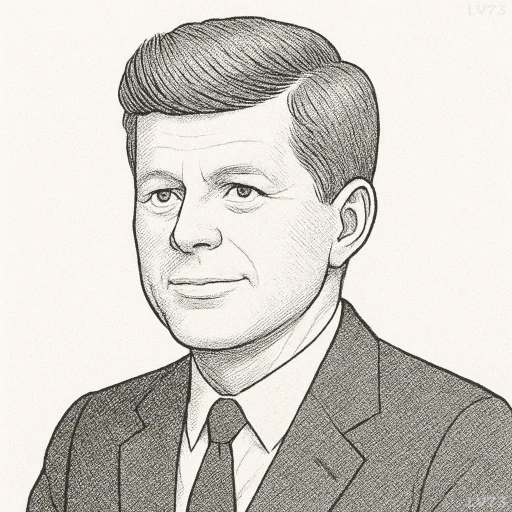“The courage of life is often a less dramatic spectacle than the courage of a final moment; but it is no less a magnificent mixture of triumph and tragedy.”

- May 29, 1917 – November 22, 1963
- American
- Politician
table of contents
Quote
“The courage of life is often a less dramatic spectacle than the courage of a final moment; but it is no less a magnificent mixture of triumph and tragedy.”
Explanation
In this insightful statement, John F. Kennedy explores the concept of courage, distinguishing between the dramatic, often celebrated courage seen in moments of crisis or death, and the quieter, less visible courage displayed in the ongoing struggles of daily life. Kennedy acknowledges that while the courage required in dramatic moments—such as those faced in battle or at the brink of death—may appear more intense or heroic, the courage of life itself, found in the perseverance to face ordinary challenges, is equally profound. It is a mixture of triumph and tragedy, as the daily act of continuing to move forward despite adversity involves both strength and sacrifice. This courage might not be as visually striking or as immediately apparent, but it is just as crucial to the human experience and can be equally transformative.
Kennedy’s words reflect his own personal philosophy, one that was shaped by his own battles with illness, his time in World War II, and the personal and public challenges he faced as president. He understood that leadership required the courage to act in moments of crisis, but also the steadfastness to face the ongoing, less glamorous responsibilities of public life. In a time of global tension during the Cold War, Kennedy’s leadership was a balance between navigating dramatic events, like the Cuban Missile Crisis, and addressing long-term issues such as civil rights and economic policy. His ability to maintain his composure and resolve through both dramatic crises and day-to-day challenges demonstrated the kind of courage that Kennedy admired.
In modern times, Kennedy’s quote can be applied to many areas of life, particularly in how we view personal challenges and the ongoing struggles individuals face. In today’s world, people often celebrate dramatic, visible acts of courage—whether in combat, emergency responses, or during public heroism. However, the true courage many individuals display on a daily basis—whether in the form of enduring personal loss, facing mental health challenges, parenting, or working towards long-term goals in the face of uncertainty—is no less significant. Kennedy’s insight reminds us that ordinary acts of courage, often unseen, are the quiet engines of progress and personal growth, and that these moments, though less dramatic, are no less a combination of triumph and tragedy, contributing to the larger narrative of human resilience.
Would you like to share your impressions or related stories about this quote in the comments section?


